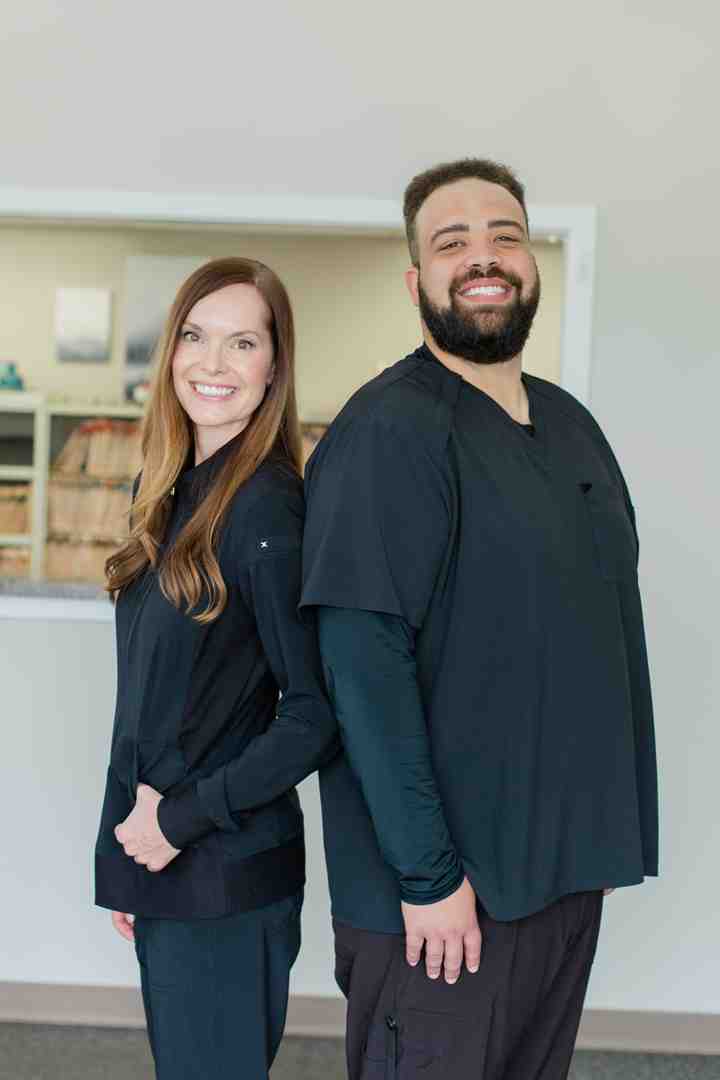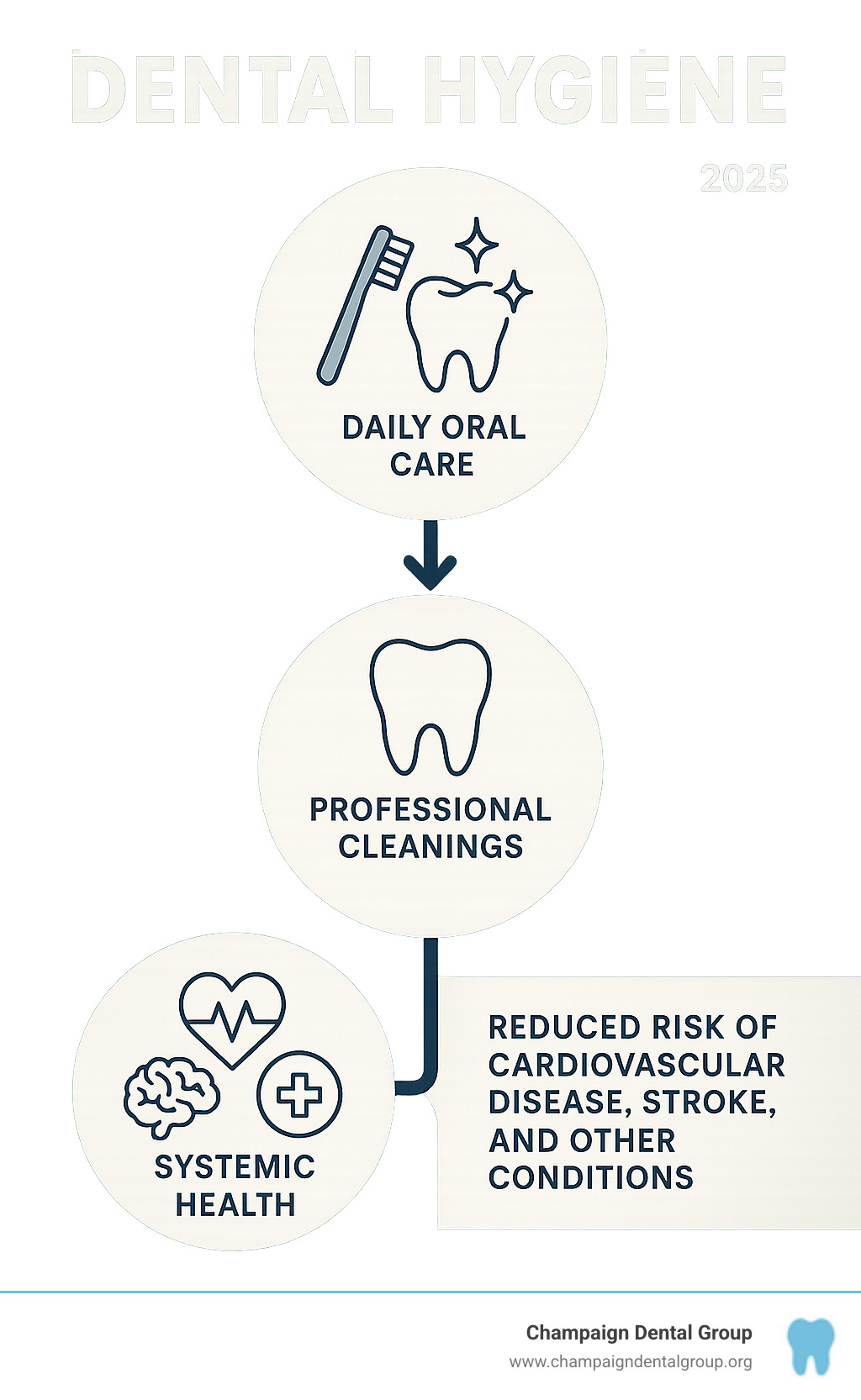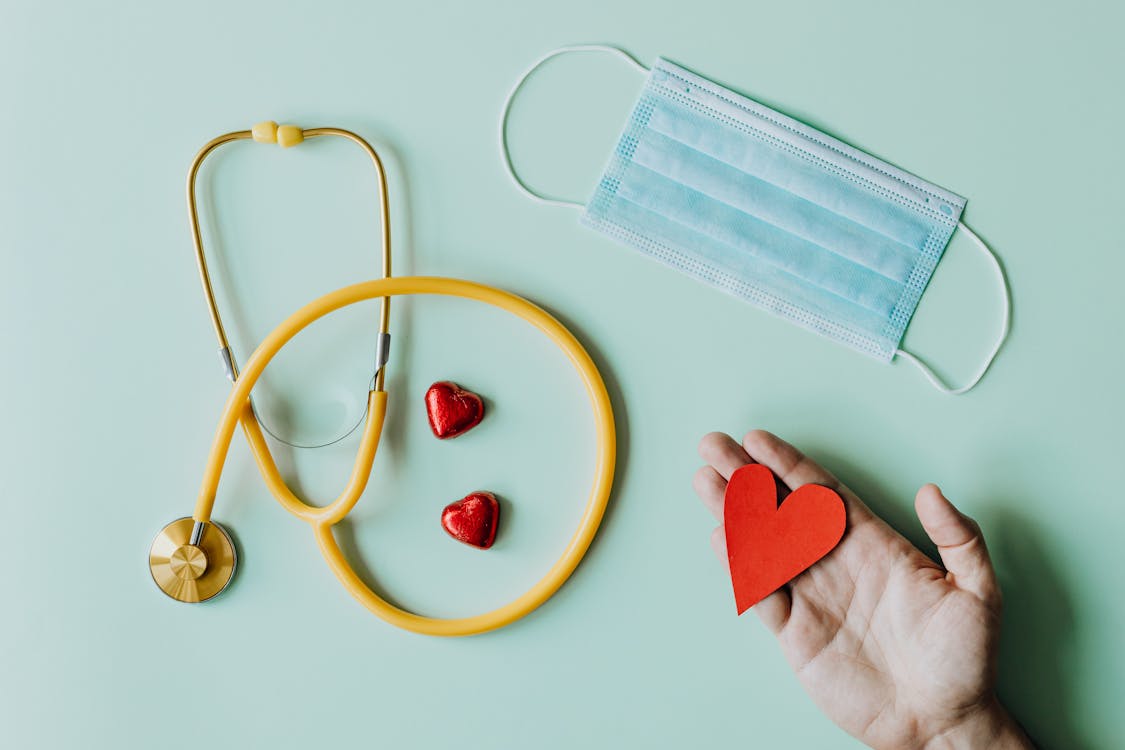Everything You Need to Know About Dental Hygiene

Why Dental Hygiene is Essential for Your Family's Health
Dental hygiene is the practice of keeping your mouth clean and disease-free. It's much more than just a bright smile—it's a cornerstone of your family's overall health. Good oral hygiene involves daily brushing and flossing, a tooth-friendly diet, and regular professional cleanings every six months.
The key benefits are significant: preventing cavities and gum disease, protecting your overall health from related conditions like heart disease, saving money on future treatments, and boosting confidence with a healthy smile.
As one dental professional puts it: "Oral health is directly linked to whole-body health, with oral infections potentially leading to systemic issues like heart disease and stroke."
The mouth is a gateway to the body. Harmful bacteria from poor oral hygiene can enter the bloodstream and cause serious problems. At Champaign Dental Group, our compassionate staff understands that busy families need convenient, comprehensive care. We provide state-of-the-art dental hygiene services designed to keep your family healthy.

Dental Hygiene terms to know:
The Fundamentals of Good Oral Hygiene
Think of dental hygiene as a daily routine that prevents problems before they start. An effective routine is built on three pillars: proper brushing, smart flossing, and strategic mouthwash use.
Proper brushing technique is your foundation. Brush at least twice a day for two full minutes with a soft-bristled brush and fluoride toothpaste. Angle the brush at 45 degrees toward your gum line and use gentle, short strokes, covering all tooth surfaces. Smart flossing methods tackle the spaces your toothbrush can't reach. Use about 18 inches of floss, guiding it gently between teeth in a C-shape. Finally, an antimicrobial mouthwash can reduce bacteria and strengthen enamel, but it never replaces brushing and flossing.
Want to dive deeper? Check out What Causes Cavities and our comprehensive Dental Care Tips.
Mastering Your At-Home Dental Hygiene Routine
Creating a consistent at-home routine is the key to long-term oral health. It starts with having the right tools and habits.

- Choose the right tools: A soft-bristled toothbrush protects your gums, while fluoride toothpaste with the American Dental Association seal of acceptance strengthens enamel against acid attacks.
- Build a schedule: Link your oral care to existing habits, like brushing after breakfast and before bed, to make it automatic.
- Watch your diet: Sugary and acidic foods feed harmful bacteria. A diet rich in calcium, fruits, and vegetables supports strong teeth and gums. Try to consume sweets with a meal to limit prolonged acid exposure.
For more guidance, explore our Good Oral Hygiene Routine and 10 Ways to Take Care of Your Teeth.
Warning Signs of Poor Oral Hygiene
Your mouth sends signals when your dental hygiene needs attention. Recognizing these signs early can prevent serious issues.
- Bleeding gums: Healthy gums shouldn't bleed. This often indicates gingivitis, the reversible first stage of gum disease.
- Chronic bad breath: Persistent bad breath can signal bacteria buildup or underlying gum disease.
- Tooth decay or sensitivity: Sensitivity to hot or cold, or visible spots on teeth, means bacteria are damaging your enamel.
- Gum recession or loose teeth: These are serious signs of advanced gum disease that require immediate professional care.
If you notice any of these warning signs, don't wait. Our experienced team at Champaign Dental Group provides high-quality, compassionate patient care to address your concerns. For more information, visit our Gum Care Tips.
How Oral Health Impacts Your Overall Well-being
The health of your mouth directly impacts your entire body. This is known as the mouth-body connection. Dental hygiene isn't just about a pretty smile; it's a critical component of protecting your heart, lungs, and overall systemic health.

Your mouth is a primary entry point to your digestive and respiratory systems. When harmful bacteria from poor dental hygiene multiply, they can travel through the bloodstream and cause inflammation and disease in other parts of the body. This relationship is also bidirectional: systemic conditions like diabetes can increase your risk for gum disease, while gum disease can make it harder to manage blood sugar.
This is why our team at Champaign Dental Group is so passionate about preventative care. We help families understand that investing in regular dental hygiene is an investment in their total wellness.
The Link Between Oral Health and Systemic Conditions
Growing research confirms the link between oral health and serious medical conditions. When bacteria from infected gums enter the bloodstream, they can cause widespread inflammation and complications.
- Cardiovascular Disease & Stroke: Oral bacteria can contribute to plaque buildup in arteries, increasing the risk of heart attack and stroke.
- Endocarditis: This is a life-threatening infection of the heart's inner lining, which can be caused by oral bacteria entering the bloodstream through bleeding gums.
- Pneumonia: Bacteria from the mouth can be inhaled into the lungs, leading to respiratory infections.
- Pregnancy Complications: Severe gum disease has been linked to premature birth and low birth weight.
The compassionate team at Champaign Dental Group has served our community since 1997, and we've seen how proper oral care contributes to better health outcomes. Our state-of-the-art technology helps us detect problems early, ensuring every family member gets the personalized care they need.
For more professional insights, see the Clinical Practice Resources from ADHA and learn about The Importance of Regular Dental Check-Ups Beyond Cleaning.
The Professional Dental Hygiene Team: Your Partners in Health
While your daily routine is essential, it's only half the battle. Professional cleanings and check-ups with your dental hygiene team are critical for comprehensive oral care. At Champaign Dental Group, we are your partners in health, where our compassionate staff delivers the high-quality patient care you deserve using state-of-the-art technology.
Professional visits are vital for:
- Expert Cleanings: Our skilled hygienists use specialized tools to remove stubborn plaque and calculus (hardened plaque) that your toothbrush can't.
- Patient Education: We provide personalized coaching on brushing techniques, product recommendations, and advice custom to your unique needs.
- Early Detection: We can spot cavities, gum disease, and other concerns long before they become painful or expensive problems.
For families seeking affordable options, our Smile Protection Plan makes quality preventative care accessible. Learn more about the Benefits of Regular Dental Visits and our Preventative Dentistry Services.
The Core Responsibilities of a Dental Hygiene Professional
Dental hygienists are licensed health professionals and the heroes of preventive dentistry. They are highly trained specialists focused on keeping your mouth healthy.

During your visit, your hygienist performs a patient assessment, takes diagnostic X-rays, and provides periodontal debridement—the careful removal of plaque and calculus from every tooth surface. For younger patients, they may apply protective sealants. Beyond the cleaning, they are passionate educators, offering customized advice to improve your home care. Find out more about Calculus and Plaque Remover and what happens during a Comprehensive Dental Examination.
What to Expect During Your Cleaning Appointment
Feeling nervous is normal! At Champaign Dental Group, our goal is to make you feel comfortable and informed. Your appointment begins with a gentle dental exam. Next is scaling, where your hygienist removes plaque and calculus. For most people, this is completely comfortable. The visit often ends with polishing for a smooth finish and a fluoride treatment to strengthen enamel. Before you leave, you'll receive personalized advice for your home routine. We believe in a collaborative relationship to help you achieve your best smile.
Explore what a Dental Cleaning Check-Up involves and the benefits to your Teeth Cleaning Health.
A Career in Dental Hygiene: Education, Roles, and Outlook
Have you ever wondered what it takes to be a dental hygienist? It's a rewarding profession that blends science, patient care, and education. Dental hygiene professionals are licensed health experts on the front lines of preventive healthcare, making a real difference in people's lives.
At Champaign Dental Group, we see the incredible impact our hygienists have. They are educators and health advocates who are often the first to spot potential issues affecting overall well-being. The career offers high job satisfaction, flexibility in scheduling, and a chance to make a significant impact on community health. The growth outlook is also excellent, with the U.S. Bureau of Labor Statistics projecting faster-than-average growth for the profession.
This commitment to excellence is why you can trust the care you receive from our team. Learn more about the profession at Why Choose Dental Hygiene as a Profession?.
Education and Qualifications
Becoming a dental hygienist requires rigorous education and licensing. Most hygienists earn an Associate's degree or a Bachelor's degree in dental hygiene, which involves comprehensive training in oral anatomy, clinical skills, and patient care. After completing their degree, they must pass the National Board Dental Hygiene Examination (NBDHE) and a state or regional clinical exam to become licensed. This ensures every hygienist, including those on our team, meets the highest professional standards.
| Degree Type | Typical Duration | Focus |
|---|---|---|
| Associate's Degree | 2-3 years | Core clinical skills, patient care, basic sciences |
| Bachelor's Degree | 4 years | Advanced practice, leadership, research, public health |
For those interested in practicing in Canada, the Canadian Dental Hygienists Association provides excellent resources.
Career Outlook and Employment
The world of dental hygiene offers diverse career paths. While many find fulfilling careers in private practices like ours at Champaign Dental Group, others work in public health, hospitals, or educational institutions. The demand for skilled hygienists is growing, reflecting an increased awareness of preventive healthcare. This ensures excellent job security and opportunities for those dedicated to promoting oral health. For more information on the various roles, visit Roles of an RDH from ADHA.
Why Dental Hygiene is Essential for Your Family's Health
Dental hygiene is the daily practice of caring for your mouth to prevent disease. More than just achieving a bright smile, it is a fundamental part of your family's overall health and well-being. This includes consistent brushing and flossing, professional cleanings, and a healthy diet.
The benefits extend beyond your mouth. Good oral hygiene prevents cavities and gum disease, reduces the risk of serious health conditions like heart disease, saves money on extensive dental work, and boosts self-confidence.
The mouth is the gateway to the body, and bacteria from oral infections can lead to systemic health problems. Establishing good dental hygiene habits protects your entire family's long-term health. At Champaign Dental Group, our compassionate staff is dedicated to providing state-of-the-art dental hygiene services that fit your family's busy schedule and promote lifelong wellness.
Learn more about related topics:
The Fundamentals of Good Oral Hygiene
Think of dental hygiene as your family's daily defense against cavities, gum disease, and bad breath. The goal is prevention, which is always easier and less costly than treatment. The foundation of effective dental hygiene rests on three key techniques.
- Proper Brushing: Brush twice daily for two minutes with a soft-bristled brush. Angle the brush at 45 degrees toward the gums and use gentle, short strokes. Don't forget to brush your tongue to remove bacteria.
- Smart Flossing: Flossing daily is crucial for cleaning between teeth where a toothbrush can't reach. Use about 18 inches of floss, curving it in a C-shape around each tooth.
- Thoughtful Mouthwash Use: An antimicrobial mouthwash can supplement your routine by reducing bacteria, but it is not a substitute for brushing and flossing.
For more insights, explore What Causes Cavities and our Dental Care Tips.
Mastering Your At-Home Dental Hygiene Routine
Your bathroom is mission control for your family's oral health. A consistent routine is your best defense against dental problems.

Start with a soft-bristled toothbrush and fluoride toothpaste bearing the ADA seal of acceptance. Create a consistent schedule by linking brushing and flossing to other daily habits. Finally, a balanced diet low in sugar supports strong teeth and gums. Limiting snacks between meals reduces the time your teeth are exposed to acid.
Our team has created guides to help you build these habits: Good Oral Hygiene Routine and 10 Ways to Take Care of Your Teeth.
Warning Signs of Poor Oral Hygiene
Your mouth will signal when your dental hygiene needs a boost. Pay attention to these red flags:
- Bleeding gums during brushing.
- Persistent bad breath.
- Tooth sensitivity or visible decay.
- Receding gums or loose teeth.
If you notice these signs, contact our compassionate team at Champaign Dental Group. We provide gentle, effective solutions. For more on gum health, visit our Gum Care Tips.
How Oral Health Impacts Your Overall Well-being
It may be surprising, but your oral health is deeply connected to your overall health, affecting everything from your heart to your lungs. This is the "mouth-body connection," a concept that highlights how your mouth's health is integral to your body's systemic well-being.
This relationship is bidirectional: poor dental hygiene can harm your general health, and certain health conditions can negatively affect your teeth and gums. For example, diabetes increases the risk of gum disease, and gum disease can complicate diabetes management. This two-way street underscores the importance of preventative care. Taking care of your mouth is a crucial step in taking care of your entire body.
The Link Between Oral Health and Systemic Conditions
The evidence is clear: oral health is linked to serious systemic conditions. Infections like gum disease allow harmful bacteria to enter the bloodstream, leading to inflammation and complications elsewhere.
Poor oral health is linked to:
- Cardiovascular Disease: Oral bacteria can contribute to arterial plaque, increasing heart attack and stroke risk.
- Pneumonia: Inhaling bacteria from the mouth can cause respiratory infections.
- Pregnancy Complications: Severe gum disease is associated with premature birth and low birth weight.
Understanding this connection is central to the high-quality patient care we provide. For professional insights, refer to Clinical Practice Resources from ADHA. Learn more about why regular visits are critical in The Importance of Regular Dental Check-Ups Beyond Cleaning.
The Professional Dental Hygiene Team: Your Partners in Health
While daily home care is vital, it's only one part of the dental hygiene equation. Regular visits to your professional dental team are equally important. At Champaign Dental Group, our compassionate staff provides high-quality patient care, acting as your dedicated partners in maintaining a healthy smile and overall wellness.
Professional cleanings offer benefits you can't achieve at home, including early detection of potential issues and personalized patient education to optimize your routine. Exceptional dental hygiene care is a blend of clinical expertise and genuine human connection, which our Champaign team is committed to providing.
Find the Benefits of Regular Dental Visits and explore our Preventative Dentistry Services.
The Core Responsibilities of a Dental Hygiene Professional
Dental hygienists are licensed health professionals who are the heroes of preventative dentistry. Their work is essential for preventing and treating oral diseases.
Key responsibilities include:
- Patient Assessment: A thorough review of your oral tissues, health history, and risk factors.
- Taking X-rays: Using diagnostic imaging to spot hidden issues like cavities and bone loss.
- Periodontal Debridement: The meticulous removal of plaque and calculus from teeth.
- Applying Sealants: A protective coating applied to back teeth to prevent cavities.
- Oral Hygiene Instruction: Personalized education on home care techniques and diet.
For more details, see Calculus and Plaque Remover and Comprehensive Dental Examination.
What to Expect During Your Cleaning Appointment
At Champaign Dental Group, we want you to feel comfortable and informed. Here’s what to expect during a typical cleaning:
- Dental Exam: A thorough inspection of your teeth and gums.
- Scaling: Careful removal of plaque and calculus. For most, this process is painless.
- Polishing: A special paste is used to smooth tooth surfaces and remove stains.
- Fluoride Treatment: A final step to strengthen enamel and protect against cavities.
- Personalized Advice: Custom tips to improve your home care routine.
Our goal is to empower you in a collaborative, co-therapeutic relationship. Learn more at Dental Cleaning Check-Up and Teeth Cleaning Health.
A Career in Dental Hygiene: Education, Roles, and Outlook
A career in dental hygiene is a rewarding path that combines science, healthcare, and patient education. Dental hygienists are licensed professionals who play a crucial role in preventing oral disease and promoting overall wellness.
The profession offers incredible job satisfaction from helping people achieve healthy smiles, along with flexibility in work schedules, making it an appealing choice for a healthy work-life balance. The impact of a hygienist extends far beyond cleaning teeth; they are educators and advocates who help prevent serious systemic health conditions.
From a career growth perspective, the outlook is bright, with employment projected to grow faster than average. This reflects a growing awareness of the importance of preventive oral healthcare. For more information, visit Why Choose Dental Hygiene as a Profession?.
Education and Qualifications
The path to becoming a dental hygienist requires a dedicated educational journey. It typically begins with an Associate's Degree or a Bachelor's Degree in dental hygiene. All graduates must then pass national and state/provincial licensure exams to ensure they are qualified to provide high-quality patient care. This rigorous process ensures that every hygienist, like those at Champaign Dental Group, is an expert in their field. For Canadian requirements, visit the Canadian Dental Hygienists Association.
Career Outlook and Employment
The career landscape for dental hygiene professionals is diverse. While many work in private practices, opportunities also exist in public health, hospitals, and educational institutions. Salary expectations are competitive, reflecting the specialized skills required. With strong job growth projected, dental hygiene is a stable and rewarding career that offers the satisfaction of helping others maintain their health and confidence. To learn more about the possibilities, see the Roles of an RDH from ADHA.
.jpg)